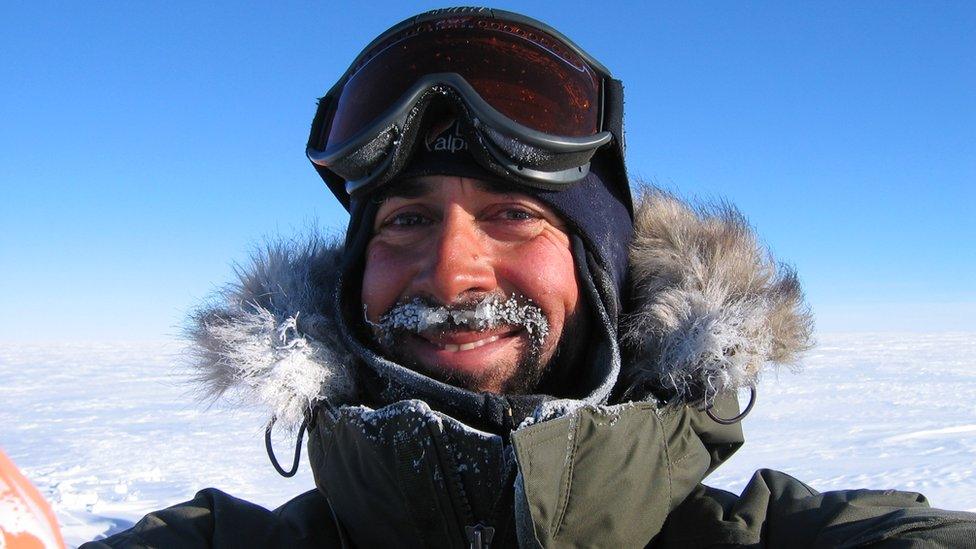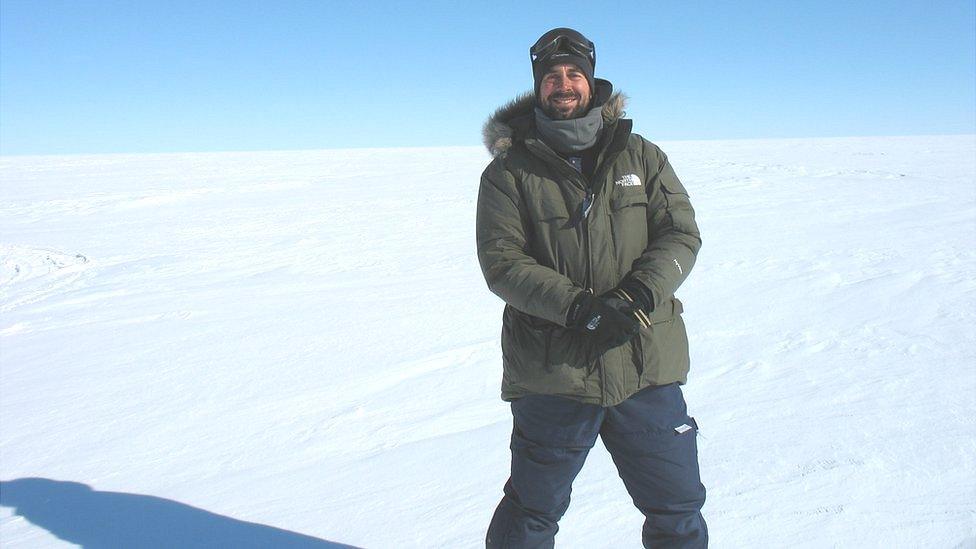Scientist wins royal award for work in Arctic
- Published

An Edinburgh scientist has won royal recognition for his pioneering glaciological work in the Arctic.
Pete Nienow, of Edinburgh University, received the Polar Medal, previously given to Sir Captain Scott, Sir Ernest Shackleton and Sir Edmund Hillary.
The medal is approved by The Queen and is given to those who have undertaken expeditions in extreme hardship.
It is also given to explorers who make an important contribution to scientific knowledge of the Polar regions.
It was first awarded in 1904 as a reward to those who took part in Captain Scott's first expedition to Antarctica.
Prof Nienow is a glaciologist specialising in how glaciers and ice sheets respond to climate change.

His research in, and passion for, the Arctic began in 1995 with a visit to remote Ellesmere Island in the Canadian High Arctic, which has a population of just 150 people on an island almost the size of Britain.
Since 2004, Prof Nienow has been on more than 10 expeditions to the Greenland Ice Sheet, firstly to undertake fieldwork to help calibrate the European Space Agency's CryoSat-2 satellite and more recently, to improve our understanding of the links between ice melt, ocean circulation and how ice masses will respond in a warming world.
Blizzards of -35C
During the two decades he has been working in the Arctic, the ice masses there have been losing ice at an increasing rate as a result of global warming, which is amplified in the Arctic regions.
Prof Nienow's work is focused on improving our understanding of the processes that are driving this ice mass loss and in enhancing our ability to predict future ice volume and thus sea-level change.
He said: "I am very honoured to be awarded the Polar Medal, which is in reality the result of the wonderful support that I have received over many years from numerous colleagues, and especially my PhD students and post-doctoral researchers.
"It makes those times spent holed up in a tent enduring blizzards at -35C on the Greenland Ice Sheet worthwhile.
"The medal will also inspire my continued efforts in researching the Arctic region as it undergoes a period of intense change."